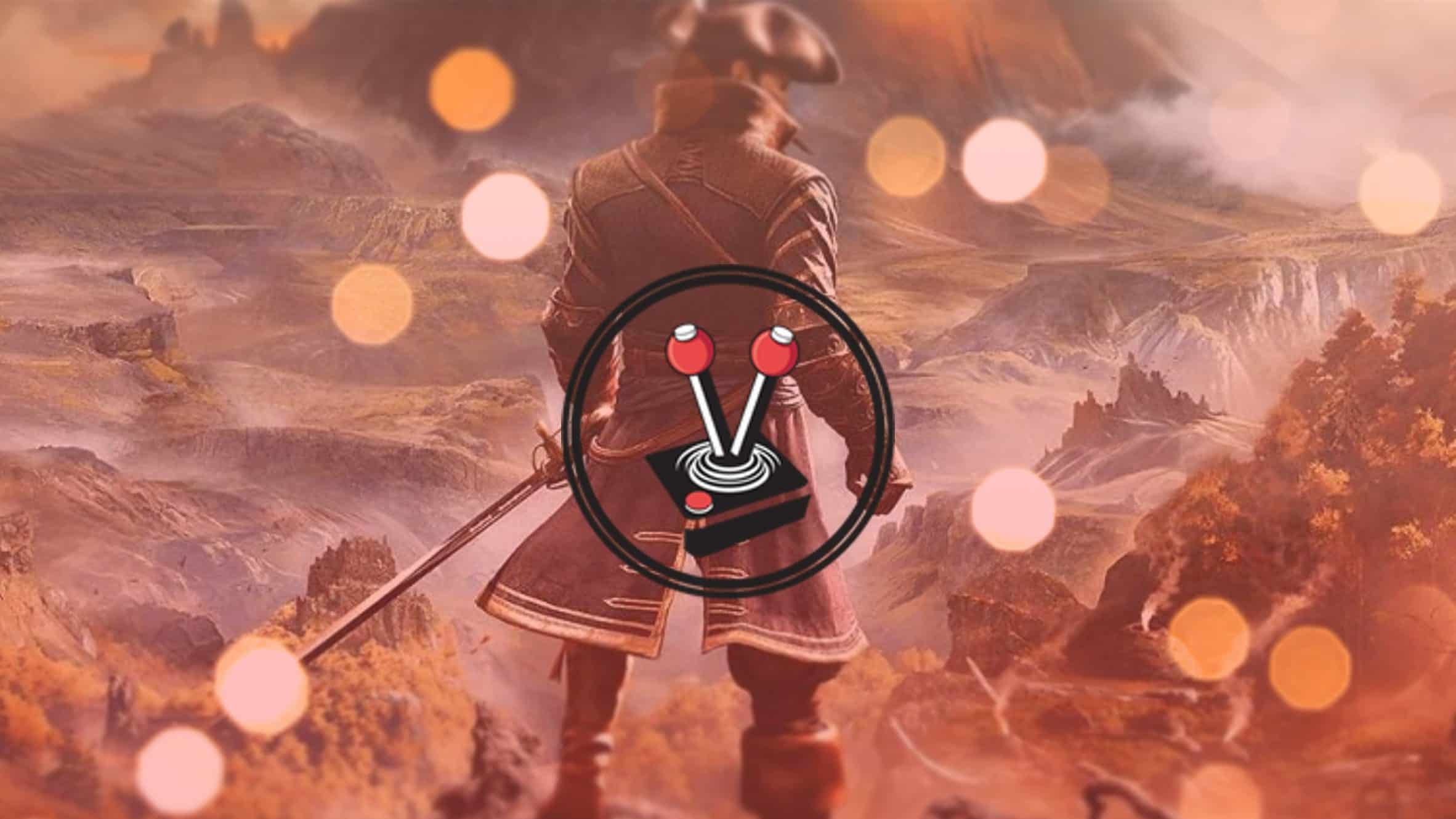Spiders Studio is a small development team most well known for The Technomancer. In 2019, they were acquired by BigBen Interactive. A company known for titles like WRC8, The Sinking City and Warhammer 40 000. With a new parent company in toe, the small studio has been working feverishly on Greedfall, an impressive new role-playing game (RPG).
Greedfall is a third-person role-playing game with adventure elements, and is comparatively similar to games like Dragon Age and Mass Effect. The game tasks you with going on a quest, one where you meet new companions, choose to liberate entire factions, and even become a champion of the people. It is also an adventure game where you get to loot dead enemies and build a character into pretty much any combination of class stereotypes, or a hybrid thereof. It is very much the kind of game that Bioware fans have spent years wishing for and, in some respects, surpasses those expectations.
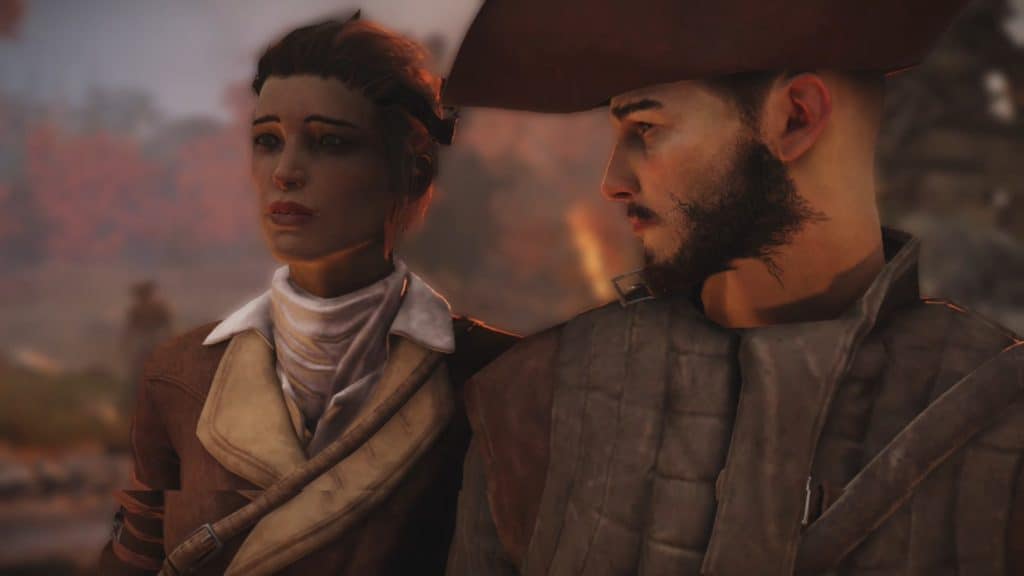
Welcome to the new world!
In Greedfall you take on the role of De Sardet, who is the niece/nephew to prince Constantin d’Orsay. De Sardet is also a legate, and thus a diplomatic ambassador of the Merchants Congregation. As legate, it is up to De Sardet and fellow compatriots to travel to New Serene and the island of Teer Fradee. It is here where De Sardet will do anything and everything to bring the various factions of the island to order. Either under a single banner or have them friendly enough to have open relations. Alternatively, you could also completely remove the malicious factions from the table altogether. The choice is yours.
Greedfall’s premise of ‘restoring order’ is standard fair, and many RPG fans will recognise it. Similarly, gamers familiar with RPG’s will also recognise how this premise will not last for very long; especially once the narrative begins to open up. Speaking of, the initial premise of who you are, and what your mission is, occurs by means of a slow-paced opening sequence that lasts a good one to two hours; depending on the type of player you are. Thereafter, the game throws you into the first “open-world” instance. Here players will get a taste of exploration and the core RPG mechanics of the game; like quest giving and character progression.
After customising your character via a robust character creator, the game introduces the concept of choice to the player by way of a vast number of quests and side quests. It is up to De Sardet to meet with two ambassadors, who ask you to go on two additional quests. While doing these introductory quests, the game fleshes out the concepts of diplomacy and subterfuge – two equally intriguing facets of how to go about completing quests.
Do you want to sneak around and alter a shipping manifest without being seen? Why not put on a disguise! Alternatively, you can lace drinks with sleeping pills, or even try to sweet-talk your way to victory. These are all valid options, until you simply cannot find the correct disguise or have enough charisma to continue with the quest. At this impasse, it is up to the player to choose to return later or go in guns blazing. This ability to choose is where Greedfall excels.
In many games, “choice” is nothing more than a false construct. In Greedfall however, choice is very much a large part of the game and extends to more than just dialogue branches or ways to do singular missions.
Throughout the first several hours, the narrative takes you from the mainland to the island of Teer Fredee, and eventually to the city of New Serene. It is here where the game opens up completely, for the first time. It is also during the initial sequence of events in New Serene where the player’s party suddenly grows by at least two new companions – if not more, depending on what quests you choose to do first.
Thanks to these new companions, the quest to solidify the Merchant Congregation as one of the leading forces on Teer Fredee suddenly becomes much more challenging. The ensuing civil war between several factions and the continuous politics of the land, suddenly shifts the focus onto a number of new mysteries about the origins of the Merchants Congregation, its allied faction, the Bridge Alliance, and the Nauts.
The story in Greedfall is beautifully crafted. The narrative might start innocently enough, only to expand and grow as more sinister forces make themselves known. The blend between quests; from companions, regular quest-givers or faction rulers; and the various methods players can choose to complete these tasks; all works fantastically.
In this way, Greedfall manages to encompass a huge odyssey in an easy-to-digest system – akin to titles from Bioware. While it does not directly draw from the likes of Dragon Age or Mass Effect, it is easy to see why Greedfall can be compared with the best of those franchises.
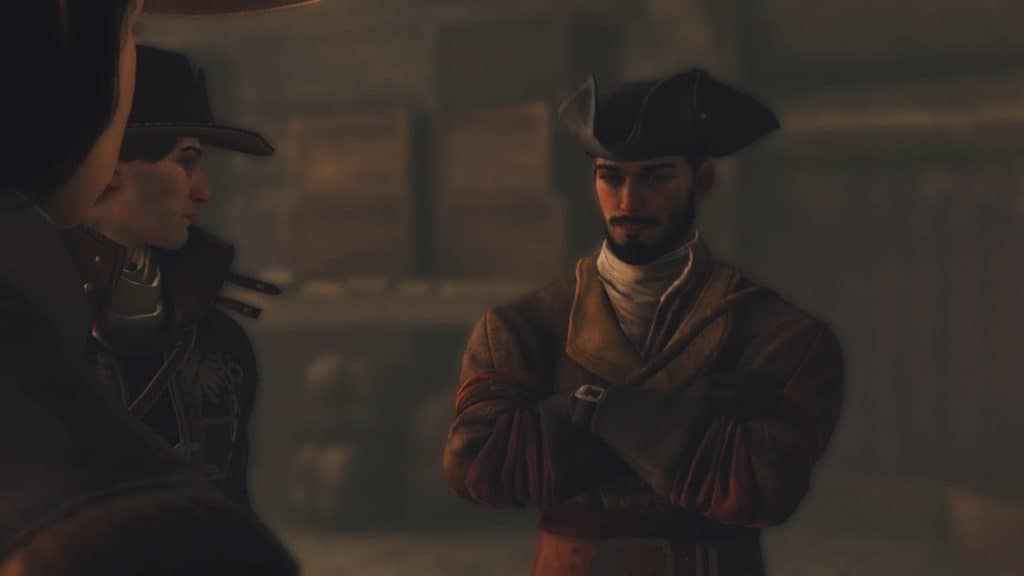
Be the best you
Naturally, good stories and quests are but two facets of gameplay. To keep those two from turning a game into an interactive movie, you also need good gameplay. Of this, character progression, exploration, and player choice, always take precedent in an RPG. The good news is how these are all core tenets of Greedfall, but in the forms of Choice, Progression, and Exploration. The three may seem trivial at best when you look at the game as a whole, but on their own, they serve to complement one another in useful, artful and interesting ways. Lending a unique feel to the title.
Choice is an especially wonderful aspect to experience. In Greedfall, choice does not just boil down to branching dialogue or quest solutions. Rather, it goes one step further by interweaving how you play, with what you say, and what you do. It even goes so far as to take into account what you do over the course of large sections, and multiple missions. All of which will eventually impact quests that players would never have guessed were interlinked. Thus ensuring all choices are relevant and carefully thought out.
One example of the excellent choice element relates directly to the aforementioned impasse, whereby I chose not to do anything and decided to rather return at a later stage. I then continued to go and complete a number of side quests, all of which seemingly had nothing to do with the main quest. However, I eventually came across a side quest which tasked me to go to the same warehouse from the main mission. At first, I thought I would become stuck again. Rather, I was surprised to find how the missions I completed right after I left the warehouse somehow opened up more dialogue options!
Thanks to a seemingly random civilian I helped earlier in the game, I now had a disguise I could use to send the warehouse guards away. Better still, thanks to yet another side quest I did, I also had the favour of a political official, which would also allow me through. In no way did the game convey how these quests might impact the main story missions. Yet by leaving one main quest in favour of a few smaller ones, I suddenly had multiple ways to complete it. It was an incredible moment for me, as I realised the game could exhibit surprising solutions and choice elements to seemingly unrelated missions. It also made me concerned about previous quests. Did I end them too hastily? Were there other possible outcomes? Worse still was the realisation of how these changes were not “once off” elements, but rather aspects of the gameplay. Aspects that became ever more prevalent as the game opened up and solidified ‘choice’ as an integral element of the title.
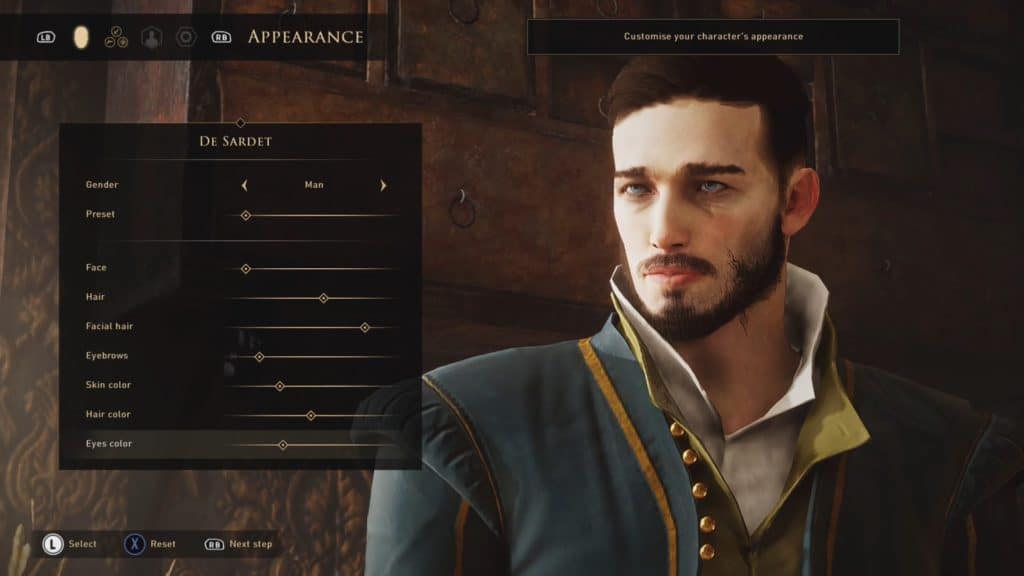
Progression is the second core pillar of Greedfall, and it makes the game incredible. It is also a facet that goes hand-in-hand with exploration and choice. As you complete quests and explore new areas, you will undoubtedly level-up De Sardet and friends. Every level-up rewards the player with a single skill point, while every four levels rewards the player with a new ability point, and every two levels thereafter, an additional point. These points can be used to specialise your character. There are three main ways to build a character in Greedfall – one of which must be chosen at the start of the game. This will create the basis of which you will build your character, from the ground up, as the game progresses. From there on out, you can put points into pretty much anything your heart desires.
Perhaps you chose to be a magic-user at the start. No problem. Mixing those skills with stealthy abilities and firearms may prove useful in certain boss fights; while opting to put some points into strength and endurance will make you more like a tank. This way, instead of going into the core “classes”: Warrior, Technical, and Magic; you can create a hybrid champion. With that said, I will say that I particularly enjoyed going down a single “colour”, and specialising my De Sardet in the Technical tree. This allowed me to use advanced firearms such as Rifles, and take advantage of poisons, traps and bombs, the further I went up the tree. Of course, the shadowstep/dodge ability from putting points into magic helped a lot whenever my ammunition count dropped below what I found comfortable.
Progression also plays heavily into choice, in terms of crafting. From the start, the game asks you to craft a sleeping concoction for guards. This is where you are introduced to crafting upgrades for armour and weapons. While I could not do anything of the sort (since my specialisation focused on traps, bombs and ammo), I eventually found a blacksmith who could do it for me. In upgrading armour, you are essentially upgrading bits and pieces, and not the entire part. Certain pieces and upgrades enhance resistances against poison or elemental damage, while others will allow you to deal extra damage, dodge roll further, or even gain more fury as you strike foes.
Exploration, on the other hand, relies heavily on the way players build their characters. While it is “open world” in a sense, the player is, at all times, locked to the constraints of a single zone. These zones are often large and seemingly unending, but they are by no means truly “open” like you would expect from games like Witcher. Rather, it is very much like Dragon Age: Inquisition.
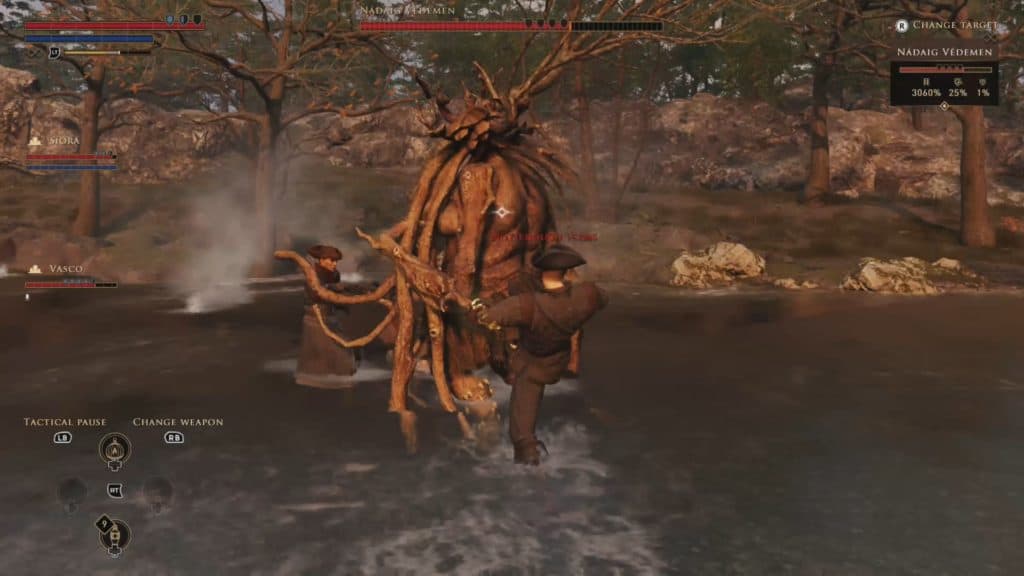
As with Dragon Age: Inquisition, the zones are vast and open. There are mountain regions, lush forested areas, and ashen locales that have seen better days. Getting to many of the locations is a matter of running to them. However, you will often come across gaps or climbable walls whereby you must have the correct combination of skills to pass. These include having two points in agility to balance over planks and logs, while you need endurance to climb large walls.
Exploring thoroughly also merits additional skill points, if you can find the altars that distribute them; and powerful gear such as legendary armour and weapons. These, however, are often hidden behind bosses with very large health pools and very powerful abilities. At level 30, I had a hard time getting past some of them! The great thing, however, is that I could come back every time I unlocked new skills or got new gear, and try again with different strategies. If traps refused to work in the past, why not come back with a fiery bomb or two? Of course, it helps a heck of a lot that you can explore pretty much as freely as you wish.
Besides these three main pillars, Greedfall really just boils down to a very smart third-person adventure title. So smart, in fact, that it also features a dynamic system among companions. As you progress through the game, your companions will come to you for help in their personal lives – issues that might even spill over into the main quest. If you decide to actively ignore these cries for help, your companions will grow distant and despondent – some going so far as to become antagonistic toward you. Relationships can me made or broken, depending on how much effort you put into them. It is a wonderful extra layer to the gameplay, and is something I have not seen since Knights of the Old Republic!
I absolutely adore every aspect of Greedfall. The three pillars work so well together to create an RPG unlike any other, yet one that feels strangely familiar. Every aspect has a place, and I feel that if any were missing it would ruin the experience of this wonderfully hardcore RPG.
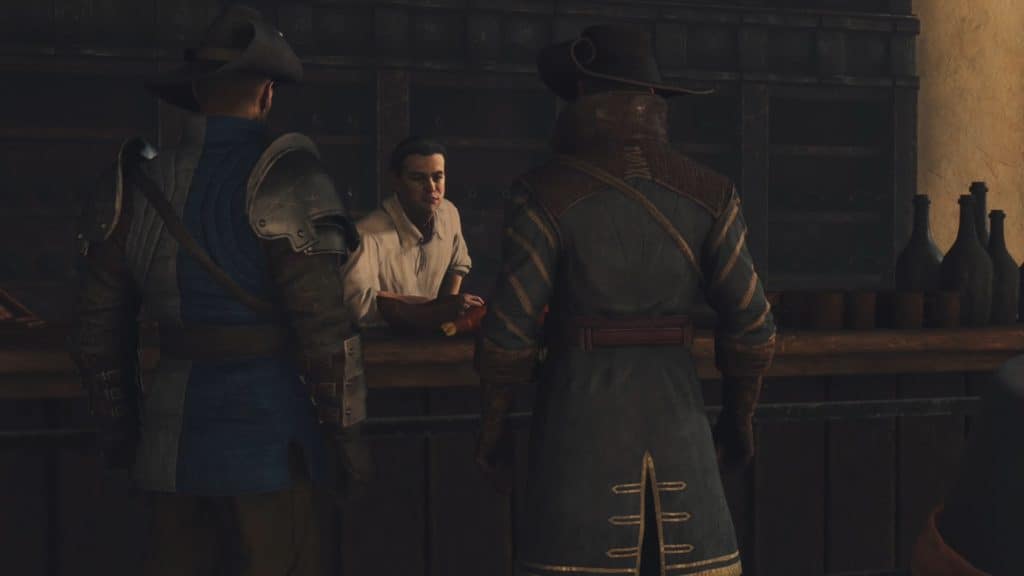
An island miracle
Given how well the three main pillars of this RPG work so well, I would be remiss for not suggesting the visuals as a possible fourth pillar. As you set foot in Serene, you are met with beautiful 70s-inspired baroque cities, clothing, and art; mixed with a very fantastical approach to the wonderful tales of golden-age piracy and victorian-era romance. It is a wonderful mixture of all the classics, with a tiny bit of fantasy sprinkled in for good measure.
From the moment the game boots up and you are met with the character creator, you can see the amount of detail that went into all of the characters. Kurt, the very first companion you come across, sports several scars on his face. These scars, while obviously used on countless other non-playable characters, look authentic enough on Kurt to make him seem unique and truly alive. This same notion goes with all other companions. Soira and Aphra are two favourites you meet later in the game. Their faces are clearly not “uniquely designed” in the same way one you would expect to see Natalie Dormer in Mass Effect Andromeda or Mark Hamil in Star Citizen. Instead, the developers chose to give all characters similar aspects that make all settlers look like, well, settlers, and all islanders look foreign and exotic.
In that vein, I must also stress how every zone feels unique and different. Zones from the same general part of the map will naturally look similar, but all of them have been crafted by hand to feel like maps of their own. As you progress through the story and make your way further in-land, you will eventually come across very unique looking zones. Each of which are unlike what has been seen before, but still somehow so geographically correct, it seems plausible.
I am no cartographer or geographical expert myself, but I cannot explain it any better. Greedfall is also capable of 4K and HDR output, making it a true feast for the senses for those who have the latest tech. Interestingly, I recently played a triple-A title that would not stop hitching or crashing on my system – Greedfall, on the other hand, ran smoothly, loaded quickly, and worked beautifully all the way through. For a title without a “Day 1 Patch”, this is remarkable, to say the least.
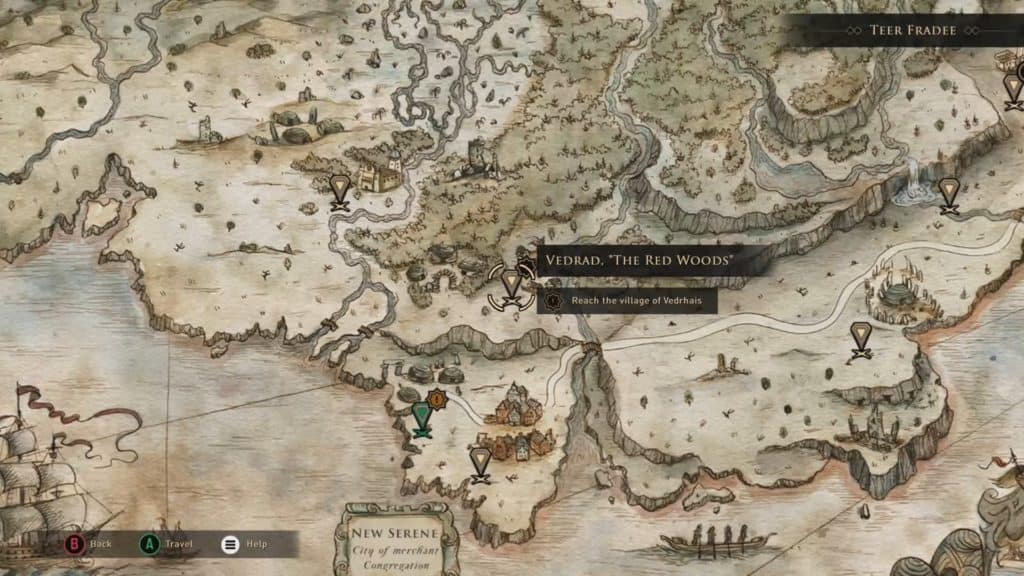
GREEDFALL IS EXCELLENT
Greedfall is obviously the culmination of years of development time with lots of heart and passion. I know this because it is evident within the game itself. I loved every single minute that I put into the game, and would gladly do so again – if time permits or when the inevitable expansion releases.
From an excellent story, driven with the underlying mystery of a haunting familial birthmark, to the seemingly countless side quests that take you all around the beautiful island of Tire Fridee; the game is lush with intrigue. Better still, your choices in the game have literal consequences. Some small, others large; but every choice makes a difference. It is not a superficial element, it is a part of the gameplay. Enhancing the notion of choice further is the way you build your particular De Sardet, and the companions that follow. No matter how you do so, it will always result in an interest and unique gameplay experience. The positives in Greedfall really are astounding.
| Time Played | 30+ Hours |
| Difficulty | Normal |
| Platform | Xbox One |
| Acquisition | Review code courtesy of Focus Home Interactive |
Junior Editor at Vamers. From Superman to Ironman; Bill Rizer to Sam Fisher and everything in-between, Edward loves it all. He is a Bachelor of Arts student and English Major specialising in Language and Literature. He is an avid writer and casual social networker with a flare for all things tech related.

